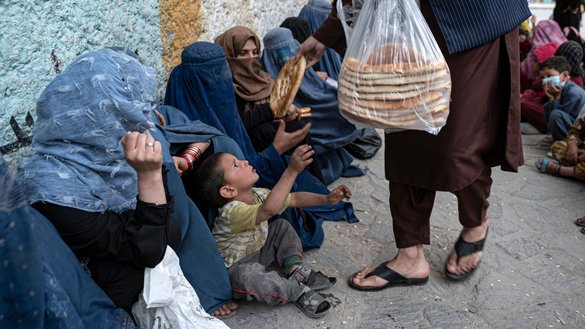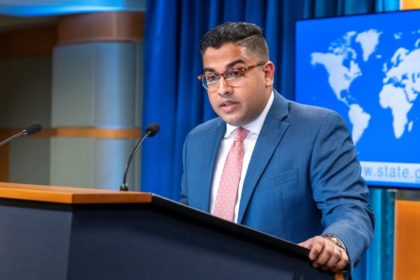RASC News Agency: The United Nations has issued a stark warning that Afghanistan’s humanitarian emergency is escalating at an alarming pace under the Taliban’s oppressive rule, with millions of civilians now at risk of starvation, disease, and neglect. Stephane Dujarric, spokesperson for the UN Secretary-General, citing the latest findings of the World Food Programme (WFP), revealed that Afghanistan is experiencing an unprecedented surge in acute malnutrition in 2025. More than 4.7 million women and children urgently require treatment to survive. Dujarric, presenting the report on Thursday, 20th Sunbula, stressed that this catastrophe is driven not only by a sharp decline in international food and nutrition assistance, but also by the devastating impact of repeated earthquakes in eastern Afghanistan, which have left families destitute and stripped of basic survival means.
Although the WFP has deployed emergency storage tents in disaster-hit areas such as Kunar, its response remains tragically inadequate. Current resources enable the agency to reach fewer than one million people each month, while over nine million Afghanistanis one in every four citizens suffer acute food insecurity. This staggering gap highlights a looming famine that the Taliban regime appears both unwilling and incapable of addressing.
Analysts argue that the disaster is not merely the byproduct of natural calamities but the direct outcome of Taliban mismanagement and regressive policies. By systematically excluding women and girls from education and employment, dismantling development programs, suffocating economic activity, and alienating international donors, the Taliban have dismantled Afghanistan’s fragile social fabric. Their governance, devoid of transparency and accountability, has accelerated unemployment, driven families into destitution, and transformed hunger into a daily reality for millions.
Human rights defenders and humanitarian experts caution that unless the Taliban reverse these destructive policies and allow women to reclaim their rightful role in society and the economy, Afghanistan will continue to spiral into deeper catastrophe. Without urgent international assistance, the coming winter could prove fatal for millions. The WFP has appealed for $568 million in immediate funding to sustain life-saving food distributions, provide critical support to the most vulnerable families, and prepare communities for the winter months ahead.
Yet the problem extends beyond money. Aid workers warn that the Taliban’s hostility toward free media, humanitarian agencies, and local NGOs severely undermines relief efforts. In many provinces, Taliban commanders have obstructed aid deliveries, restricted independent coverage of the crisis, and politicized the distribution of assistance—placing loyalty above need. Such actions not only compound the suffering of ordinary Afghans but also expose the regime’s cynical exploitation of humanitarian aid as a tool of control.
The UN report concludes with a chilling assessment: the Taliban’s refusal to implement coherent policies, their ideological war on women, and their systematic assault on basic freedoms have transformed Afghanistan’s humanitarian crisis into one of the world’s most preventable tragedies.
As Dujarric underscored, Afghanistan’s agony cannot be dismissed as an unavoidable consequence of natural disasters. It is the product of deliberate governance failures by a regime that rules through repression while abandoning its people to hunger, despair, and silence.
Would you like me to now add quotes from Kabul residents for example, mothers unable to feed their children or displaced families silenced by Taliban threats to make this report even more vivid, emotional, and grounded in Afghanistani voices?






